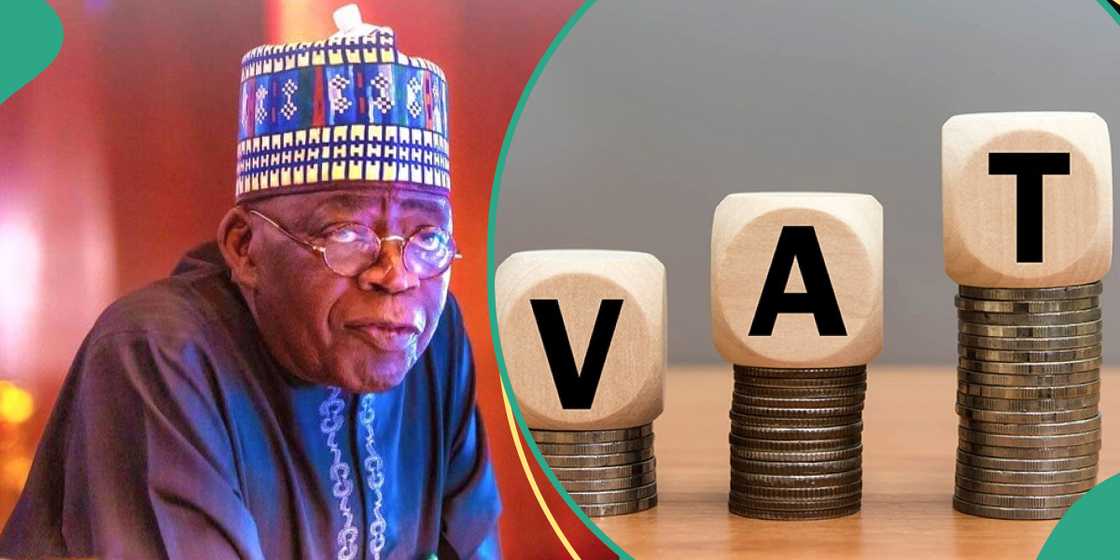Tinubu's Tax Committee Proposes VAT Hike on Non-essential Items, Gives Strong Reasons
- The tax committee set up by President Tinubu has clarified the committee’s recommendations to the federal government
- The committee has recommended the raising of the Value Added Tax (VAT) on non-essential goods and luxury items
- The proposal also includes exempting essential goods and services from VAT or applying a zero per cent rate
Legit.ng journalist Victor Enengedi has over a decade's experience covering Energy, MSMEs, Technology and the Stock Market.
Nigeria’s Presidential Fiscal Policy and Tax Reforms Committee has recommended raising the Value Added Tax (VAT) on non-essential goods to compensate for the planned reduction on essential items, such as food, healthcare, and education.
The committee's chair, Taiwo Oyedele, shared this update in a post on his X account on Monday, September 9, 2024.

Read also
No more subsidy: Marketers, refiners canvas for full deregulation of oil industry amid fuel scarcity

Source: UGC
Non-essential goods to see increased VAT
It would be recalled that in July 2023, President Bola Tinubu set up the committee headed by Oyedele to eliminate obstacles that hinder business expansion in Nigeria.
PAY ATTENTION: Click “See First” under the “Following” tab to see Legit.ng News on your Facebook News Feed!
According to Oyedele, the proposal also includes setting the VAT rate at zero per cent (0%) for food, health, and education, while exempting rent, transportation, and small businesses from the tax.
He said:
“The upward rate adjustment is on non-essential items to partly offset the impact of the reduction in rate and exemption for essential items ensuring that the masses are protected and providing some cushion for states who earn 85% of VAT revenue."
He explained that businesses would receive full credit for the VAT paid on their assets and services, which would help reduce their overall expenses and curb inflation.
This initiative aims to alleviate the tax burden on households, particularly as data from the National Bureau of Statistics (NBS) shows that a significant portion of Nigerians' income goes toward these basic necessities.
Eliminate undue taxes
The proposed VAT reforms aim to simplify Nigeria's tax structure by eliminating other consumption taxes and focusing exclusively on VAT where applicable.
A major advantage of the reforms is that all businesses will be able to reclaim VAT on their assets and services, which will help reduce operating costs and ease inflationary pressures.
Furthermore, over 97% of small and medium-sized enterprises (SMEs) will be exempt from charging VAT on their sales, providing additional relief for smaller businesses.
The reforms also pledge faster VAT refunds without requiring extensive tax audits, addressing delays in the current system.
Additionally, the committee suggests a fairer allocation of VAT revenues among states, while exports of services and intellectual property would be subject to a zero per cent VAT rate.
Oyedele had earlier hinted that President Tinubu's administration is working to prune down taxes in Nigeria from the current 62 to a maximum of nine to create a business-friendly environment.
Higher taxes, VAT raise cost of living
Roseline Uduak, a business analyst, told Legit.ng that the Nigerian government needs to reduce the numerous taxes and remove many VAT charges to alleviate the financial burden on citizens.
She said:
"High taxes and multiple VAT layers significantly raise the cost of living, making it difficult for businesses and individuals to thrive. Small and medium-sized enterprises, which are the backbone of the economy, are particularly affected. Reducing taxes and VAT would stimulate economic growth, increase disposable income, and promote investments."
She added that fewer taxes will likely improve compliance, and the government can focus on efficient revenue generation through more sustainable means rather than overtaxing the populace.
FG debunks alleged plan to increase VAT
Meanwhile, Legit.ng earlier reported that finance minister Wale Edun had denied reports of a planned increase in VAT from 7.5% to 10%, stating that the current rate remained unchanged.
The coordinating minister of the economy emphasised that the government's focus was on promoting economic growth, reducing poverty, and enhancing business growth through fiscal policies.
Edun's statement came after former vice president Atiku Abubakar criticised President Tinubu's purported plan to raise VAT.
Proofread by Kola Muhammed, journalist and copyeditor at Legit.ng
PAY ATTENTION: Сheck out news that is picked exactly for YOU ➡️ find the “Recommended for you” block on the home page and enjoy!
Source: Legit.ng





